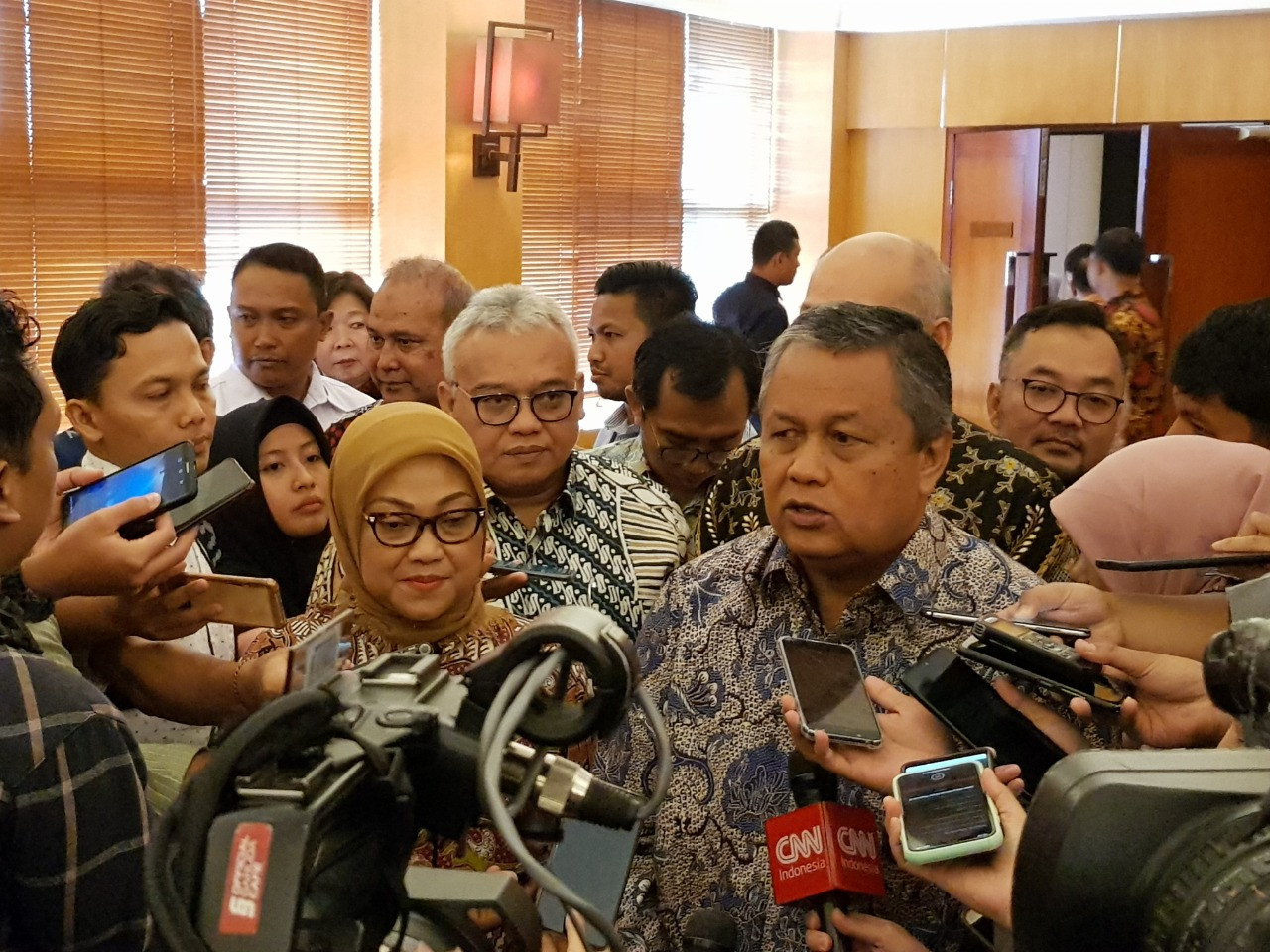Popular Reads
Top Results
Can't find what you're looking for?
View all search resultsPopular Reads
Top Results
Can't find what you're looking for?
View all search resultsBank Indonesia strikes $60b repo facility deal with US Fed as forex reserves drop
“This will be the second line of defense other than bilateral currency swaps in case we need dollar liquidity,” BI Governor Perry Warjiyo said.
Change text size
Gift Premium Articles
to Anyone
B
ank Indonesia (BI) has reached a repurchase agreement (repo) worth US$60 billion with the United States Federal Reserve to boost dollar liquidity supply following a fall in Indonesia’s foreign exchange reserves in March amid the COVID-19 pandemic.
Forex reserves dropped $9.4 billion last month to $121 billion as the central bank stepped up market intervention to stabilize the rupiah exchange rate amid heavy capital outflows, it announced on Tuesday.
“This will be the second line of defense other than bilateral currency swaps in case we need dollar liquidity,” BI Governor Perry Warjiyo said in a teleconferenced meeting later on Tuesday, adding that the current forex reserves level was “adequate” for further market interventions and the central bank would use the second line of defense if necessary.
Read also: Indonesia sells Asia's first 50-year dollar bond to fight pandemic
“The Fed only works with a few emerging countries including Indonesia on such deals,” he added. “This shows a vote of confidence in Indonesia’s economic prospects.”
The rupiah dropped around 15 percent against the US dollar in March, as investors pulled money out of emerging markets and fled to the safe-haven assets, triggering dollar liquidity shortages.
On Tuesday, the currency appreciated 1.3 percent to Rp 16,200 per US dollar, while the yield on 10-year government bonds fell 4 basis points to 8.16 percent, the first decline in seven days, according to Bloomberg data.
BI has a $30 billion bilateral swap agreement with China, $22.7 billion with Japan, around $7 billion with Singapore and an undisclosed amount with Australia and other central banks to buffer the nation’s economy in the COVID-19 battle.
Furthermore, the central bank has also sealed a $2.5 billion repo line agreement with the Bank of International Settlements and another $3 billion with the Monetary Authority of Singapore.
Read also: BI to dominate ownership of 'pandemic bonds' as debt burden grows
“Going forward, we see a higher risk of foreign reserve outflows mainly related to the COVID-19 pandemic,” Bank Mandiri chief economist Andry Asmoro wrote in a research note.
The ongoing pandemic, he went on to say, caused uncertainty in the financial markets, which made investors dump Indonesian assets and delayed the inflow of foreign direct investment into the country as the global value chain has been seriously damaged.
“It is also causing a global recession that weakens major commodity prices, disrupting Indonesia’s export performance,” Andry said, adding that the health crisis had heavily impacted Indonesia’s tourism.
“We expect the current account deficit to widen to 2.88 percent of GDP and the financial account balance to notably decline,” he said. “If the pandemic keeps getting worse, we see the balance of payments in 2020 booking a huge deficit.”
A group of economic researchers at the University of Indonesia's Institute for Economic and Social Research (LPEM UI) said that massive capital outflows during the COVID-19 crisis had an impact on slowing money supply growth in the economy as liquidity dried up.
Read also: Indonesia’s COVID-19 stimulus worth 2.5% of GDP, lower than Singapore, Malaysia
“Considering banks’ liquidity is a central factor in the money circulation cycle, particularly in terms of loan creation, the threat of liquidity shortages needs to be addressed immediately,” the researchers wrote.
"Looking at the trend of capital outflows, which suppressed forex liquidity during the pandemic, the rupiah will still be under pressure until the COVID-19 pandemic tapers off," the LPEM researchers said, projecting that the rupiah would hover at around Rp 16,500 to Rp 17,500 against the greenback this year.










